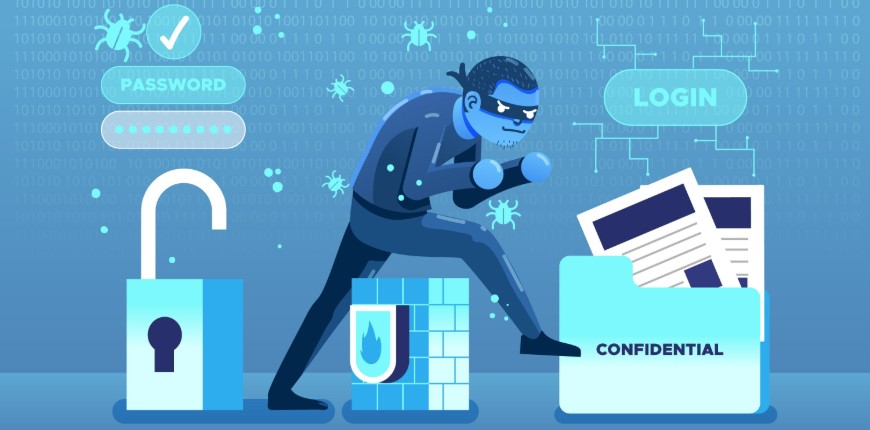
Common Cyber Threats Facing E-commerce Sites
E-commerce websites face a variety of cyber threats that can compromise both website security and customer data. Malware is a common issue, often injected into websites through vulnerabilities in software or plugins. Once installed, malware can steal sensitive information, disrupt operations, or spread to customer devices. Phishing attacks, where hackers trick users into revealing personal or financial information, also pose significant risks to e-commerce platforms. These attacks often involve fake emails or websites that mimic legitimate brands, luring customers into providing their login credentials.
SQL injection is another serious threat that targets the databases behind e-commerce websites. Hackers use this method to manipulate a website’s database, gaining unauthorized access to sensitive data such as customer details or payment information. This breach can result in financial loss and damage to your business’s reputation. These security challenges for eCommerce websites can lead to compromised customer trust, legal consequences, and lost revenue.
Addressing these cyber threats is essential for protecting both your business and your customers. By understanding the common risks, you can take proactive steps to strengthen your e-commerce website’s security and reduce the likelihood of a breach.
The Importance of Secure Payment Gateways
Secure payment gateways are essential for protecting customer financial information and ensuring safe transactions on your e-commerce website. Unsecured payment processing can lead to severe risks, including data breaches and theft of sensitive financial data such as credit card numbers. When payment information is not handled securely, it creates vulnerabilities that cybercriminals can exploit, leading to fraud and loss of trust in your platform. Addressing these risks is crucial to avoid financial and reputational damage.
To safeguard transactions, you should use a payment gateway that encrypts customer data during transmission. Encryption ensures that sensitive information, such as credit card details, remains secure while traveling between the customer, your site, and payment processors. Implementing SSL certificates, which encrypt all data exchanged between your website and its users, further enhances security. Additionally, using tokenization replaces sensitive payment data with a unique identifier, making it harder for hackers to access valuable information.
Secure payment gateways are an essential part of addressing the security challenges for eCommerce websites. By using encryption, tokenization, and SSL certificates, you protect customer financial data and provide a secure environment for transactions. These steps not only reduce the risk of fraud but also build trust with your customers, encouraging repeat business and long-term success.
Data Privacy and Compliance with Regulations
Data privacy is a major concern for e-commerce businesses, especially with regulations like GDPR and CCPA enforcing strict guidelines on how you handle customer data. The General Data Protection Regulation (GDPR) in Europe and the California Consumer Privacy Act (CCPA) in the U.S. require companies to protect personal data and provide transparency about its use. Non-compliance with these laws can result in hefty fines and legal penalties, which is why staying compliant is critical.
To address these security challenges for eCommerce websites, you must implement best practices for data privacy. First, always obtain explicit consent from customers before collecting or processing their personal data. This ensures transparency and builds trust. Second, provide easy-to-access options for users to view, modify, or delete their data in accordance with their rights under GDPR or CCPA. Additionally, encrypt customer data both in transit and at rest to protect it from potential breaches.
Regular audits of your data management practices are another essential step in maintaining compliance. By staying updated on changes in data protection laws and adjusting your practices accordingly, you can avoid legal issues. Addressing these regulations is a key part of minimizing security risks and protecting both your business and customer data.
Preventing and Mitigating DDoS Attacks
Distributed Denial of Service (DDoS) attacks pose a significant threat to e-commerce websites by overwhelming servers with excessive traffic, causing disruptions. These attacks can slow down or even crash your website, preventing customers from accessing your services. This leads to lost sales and damages your business’s reputation. DDoS attacks are one of the key security challenges for eCommerce websites, as they can take you offline for hours or even days.
Preventing DDoS attacks requires a combination of strategies. You can use content delivery networks (CDNs) to distribute your traffic and reduce the strain on your main server. Additionally, implementing a Web Application Firewall (WAF) can help detect and block malicious traffic before it reaches your site. It’s also essential to monitor your website’s traffic in real-time so you can quickly respond to unusual spikes that may indicate an attack.
If a DDoS attack occurs, quick mitigation is critical. Rerouting traffic and activating backup servers can help restore operations. Working with a DDoS protection service provider ensures that your e-commerce platform remains online during an attack. Addressing these threats proactively will minimize downtime and protect your business from the impact of DDoS attacks.
Securing Customer Information: Authentication and Encryption
Securing customer information is a top priority for e-commerce businesses, and using tools like two-factor authentication (2FA), SSL certificates, and encryption is essential. Two-factor authentication adds an extra layer of security by requiring users to verify their identity through a second method, such as a text message or email code. This reduces the chances of unauthorized access, even if passwords are compromised.
SSL certificates are also crucial in addressing security challenges for eCommerce websites. They encrypt data exchanged between your website and your customers, making it difficult for hackers to intercept sensitive information like payment details. By implementing SSL, you protect customer data during transactions and create a more secure browsing experience. Encryption ensures that any data stored or transferred remains secure, even if accessed by an attacker.
To implement these measures effectively, use 2FA for both customer and administrative access to your website. Ensure that your SSL certificates are up to date and that encryption is applied to all sensitive customer information. Regularly auditing your security measures can help you stay ahead of evolving threats and maintain a secure environment for your customers. These best practices will significantly reduce the risk of data breaches and build trust in your e-commerce platform.
The Role of Regular Security Audits and Updates
Conducting regular security audits is essential for identifying vulnerabilities in your e-commerce website. Routine audits help uncover potential weak points before hackers can exploit them. By systematically reviewing your website’s security protocols, you can spot outdated plugins, misconfigurations, or other vulnerabilities that could compromise customer data. Addressing these issues early is crucial for preventing security breaches and maintaining a secure environment.
Keeping your software, plugins, and platforms up to date is another critical aspect of managing security challenges for eCommerce websites. Hackers often target outdated systems because they contain known vulnerabilities. Regular updates help patch these weaknesses, ensuring that your website remains protected against new threats. Failing to update software can leave your site exposed to attacks, leading to potential data breaches and financial losses.
The role of regular security audits and updates is vital in maintaining a strong security posture. By staying proactive with audits and promptly updating your systems, you can prevent breaches and ensure a safer shopping experience for your customers. This approach builds trust and minimizes the risks associated with evolving cyber threats.
Conclusion
Security challenges for eCommerce websites are ongoing and require continuous attention. By addressing these challenges through secure payment gateways, data privacy compliance, and regular audits, you can protect your business and customer data. Implementing strategies like encryption, two-factor authentication, and regular updates helps you stay ahead of potential threats. A proactive approach to security ensures that your e-commerce platform remains trustworthy and resilient. By prioritizing security, you reduce risks and provide a safer experience for your customers, ensuring long-term success for your business.


